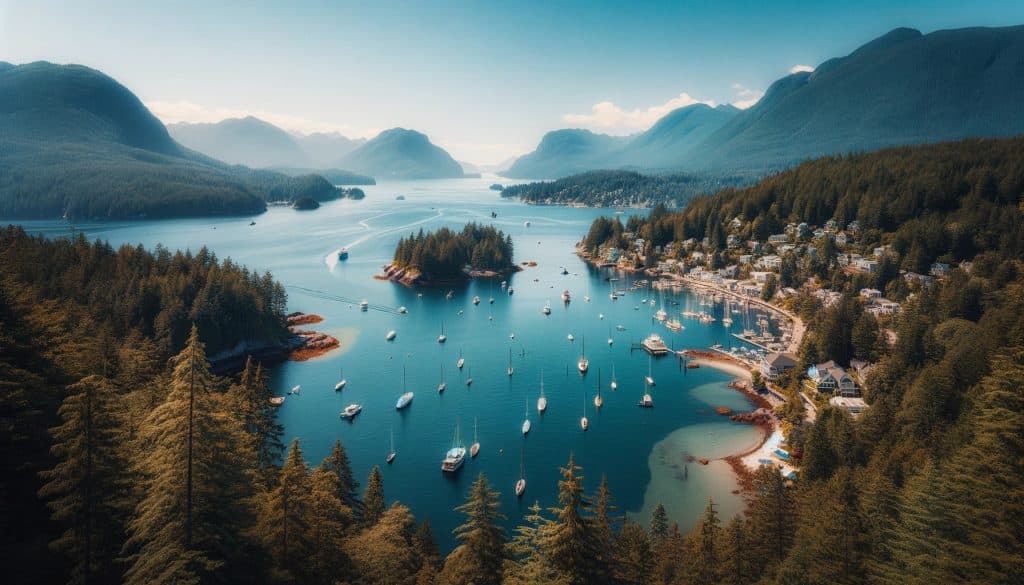
Buying and moving to an island in Canada: Part 2, the cons
Last week we talked about why you’d want to buy a Canadian island and move there, even if it’s only for part of the year. Surprisingly, island ownership is not out of reach for typical middle-class earners. Especially not so when considering the possibility of combined ownership.
But after you buy the island, as Bloomberg so classically puts it, you’ll need to “figure out how you’re going to stay alive on the island.” And we dare say, it gets more difficult than just that!
Let’s explore some cons of moving to an island, or owning one.
Moving to an island usually means living without basic amenities, or building them yourself
When you move to an island, a huge costly setback to your idealistic goal will likely be about building – and we’re not just talking about shelter. There is also water supply, electricity and even a toilet to think about. This is explained in more detail in the Bloomberg article mentioned above, and others. Here are some general things to know:
-
Islands are isolated, so transporting building material to the site will be much more expensive than transporting to larger inhabited areas. Now imagine what a moving company would charge to ferry or fly in your furniture! (This isn’t the kind of place you’d want to helicopter in a grand piano, get where we’re going with this?)
-
Even if you have the money, there can be environmental restrictions and regulations surrounding what you can and can not build on the site.
-
Then, even without government laws or money being a setback, it could take years before you can get a truly modern living situation on your island, with fresh water, sewage, electricity and so on. Oh, and then the living structure. Let’s not forget that!
Although, if you don’t mind backup generators, solar panels, water purification systems and composting toilets (as mentioned in this WikiHow article), you may be able to get away with a camping or RV-lifestyle on the island. And that ain’t bad for some who like their quiet space and nature time!
And yes, there are islands out there that are ‘hooked up’ to pipelines and wires and such. But they will likely be on the more expensive end of the island buyer’s profile. Because of this, realtor Ed Hanja says (in the Yahoo article linked to above), you might be better off buying a cabin near a shoreline, and save yourself the headache.
Moving to an island can be lonely, cold and dangerous
The other thing to sort out is, when your shelter and modern amenities are all taken care of, how you’ll live your daily life on the island after you move there. We won’t sugar coat this: it won’t be easy. If you thought waiting in traffic on weekdays was a pain, imagine the hassle of needing to take a boat or plane to buy groceries!
And ok, even if you had some great boy scouts training, and know how to survive in the wild with canned beans and a fire pit, what about supplies? Like, who knows, a garden rake to scare away the forest animals?
An article about friends who bought an island together testifies of their experience trying to get what they needed onto the island through a body of water. And this was just to make the island liveable with more than a handsaw and nature’s provision.
Islands need water depth for boats and seaplanes. Now you have to build a dock.
One thing you may not have thought of is, even if you don’t mind the boat ride or extreme measures to get to the island, how are the transport vehicles going to land or dock there? If there is a lot of shallow water, and no dock built, you may need serious muscle to get you and your stuff to home-sweet-home. If you’re a billionaire with a water plane, how close can it land to the shore? Or where will your helicopter pad be, exactly? To WikiHow’s point, you should check out the island on low and high tides before deciding whether to buy and move there.
You’re basically on your own in an emergency, survivor.
Now you need to consider, if you ever have health problems, or would ever need emergency care, you may find yourself in a bind. Logically speaking, it can take longer than usual for superhero paramedics to parachute their way in to help you. And that’s on a non-disaster day. If you were stranded during a state emergency, like a storm or earthquake, you may be last on the list of people they need to reach asap.
And, as the Bloomberg article above points out, your shelter may not be made for high-impact storms. In British Columbia, we can also guess that, unless it happens to be pre-built when you move in, earthquake-proof structures on islands are probably going to be rare.
Due to extreme weather conditions, it is unlikely you’ll want to inhabit your hypothetical island throughout the year, even if you do like the quiet and solitude. And this can be the case whether you’re in cold-winter Canada or down south in tropical places that also experience rainy seasons and storms.
Moving to islands can come with woes you can’t predict in advance
To conclude, we can see that with so much to consider before moving to an island, there will likely be more not yet thought of. For example, maintaining the island will also be an ongoing task and cost. Civilization is not easy to keep up, and having humans around can really benefit the long term quality of your island home, even if it’s just for security, let alone maintenance.
If you are considering moving to an island, you’ll want to do so after having spoken to a realtor, developer and lawyer specializing in island infrastructure and living. You should also do your research, and see if the island-owning community is willing to give you their two cents on the subject. Sometimes speaking to someone who has gone before you can bring light to a situation that even the experts may not have realized.
But don’t lose heart completely – even if it’s just a fun project for you, as we pointed out in our ‘pros’ article, moving to an island can be attainable. If you’re willing to bear the brunt of the hard parts, and are looking for a growth opportunity, this may be just the project for you! Or you know, you could plan an urban house flip or climb Mount Everest instead.
Need professional movers for your Canadian Island?
If you need movers for moving on or off of your private island, chances are Ferguson Moving Company can help you — when you’ve been moving people throughout Canada for over 100 years, you learn a thing or two about just about everything moving related!

Categories
Moving Resources
Moving Checklist
Follow this comprehensive moving checklist to ease your relocation stress and stay organized.
Learn MoreMoving Company Comparison Guide
This comparison guide helps you evaluate and select the perfect moving company for your needs.
Learn MoreWe make moves easy for you.
- Local Moving
- Long Distance Moving
- Seniors Moving
- Piano Moving
- Item Relocation
- Overnight and Long-term Storage
- Packing Supplies

